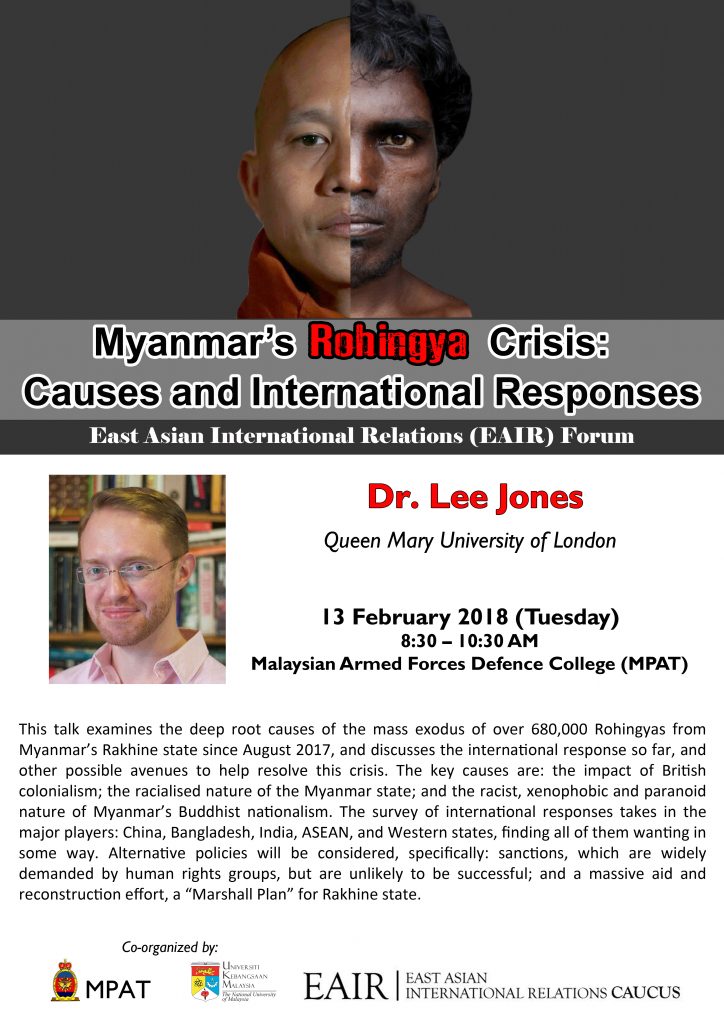
Dr. Lee Jones
13 February 2018
This talk examines the deep root causes of the mass exodus of over 680,000 Rohingyas from Myanmar’s Rakhine state since August 2017, and discusses the international response so far, and other possible avenues to help resolve this crisis. The key causes are: the impact of British colonialism; the racialised nature of the Myanmar state; and the racist, xenophobic and paranoid nature of Myanmar’s Buddhist nationalism. The survey of international responses takes in the major players: China, Bangladesh, India, ASEAN, and Western states, finding all of them wanting in some way. Alternative policies will be considered, specifically: sanctions, which are widely demanded by human rights groups, but are unlikely to be successful; and a massive aid and reconstruction effort, a “Marshall Plan” for Rakhine state.
About the Speaker: Dr Lee Jones (DPhil, Oxford) has been researching and writing about Myanmar for over a decade. He is Reader (Associate Professor) in International Politics at Queen Mary University of London. He has written extensively about ASEAN-Myanmar relations, including in his book, ASEAN, Sovereignty and Intervention in Southeast Asia (2012). He has also conducted research on efforts to tackle non-traditional security threats emanating from Myanmar, including in a book coauthored with Shahar Hameiri, Governing Borderless Threats: Non-Traditional Security and the Politics of State Transformation (2015). His latest book, Societies Under Siege: Exploring How International Economic Sanctions (Do Not) Work (2015), used Myanmar as a key case study. He has also written definitive treatments of Myanmar’s political economy and its transition from military rule in 2011. He is a key advisor to the British government on Myanmar and recently testified to the British parliament on the Rohingya crisis, with his evidence being cited nine times in the Foreign Affairs Committee’s latest report.
